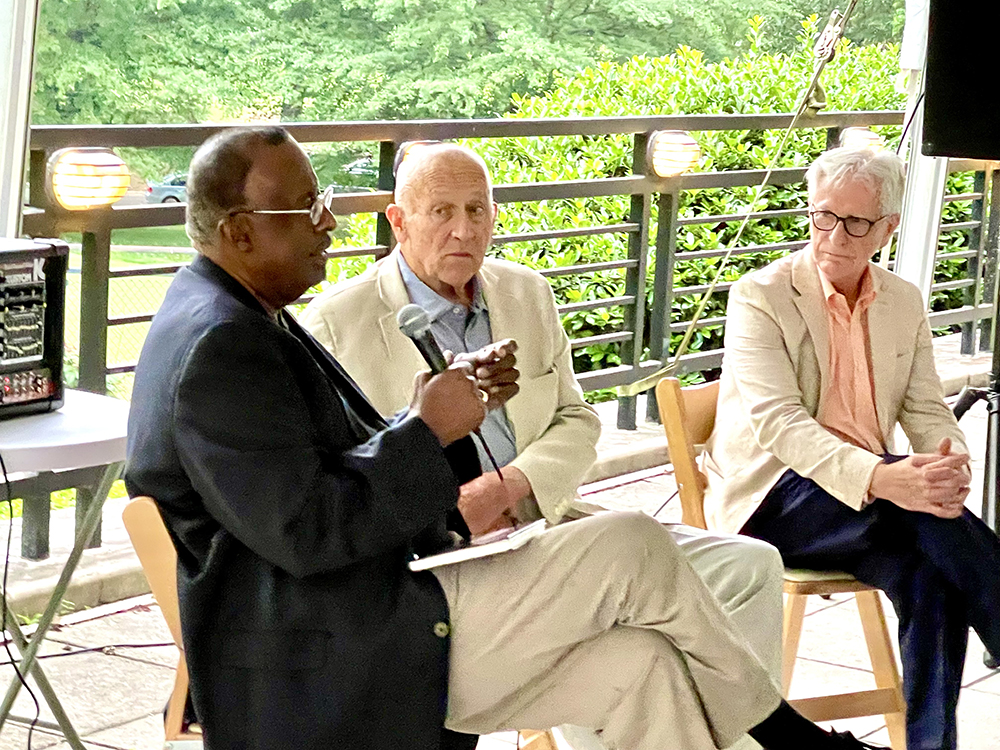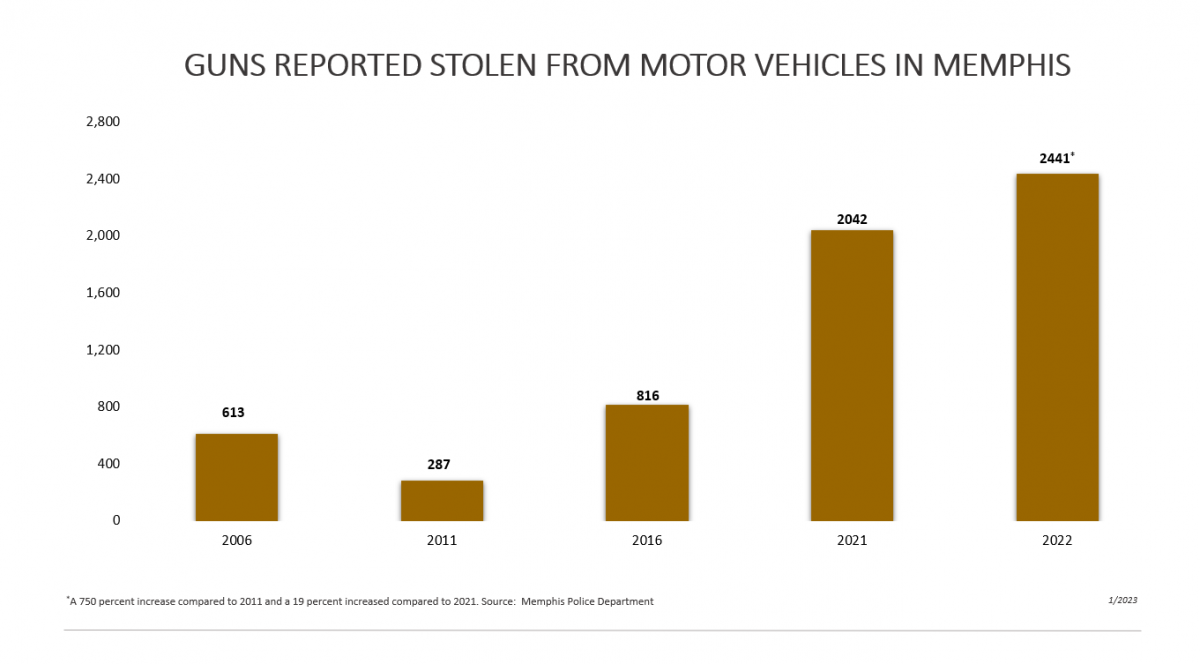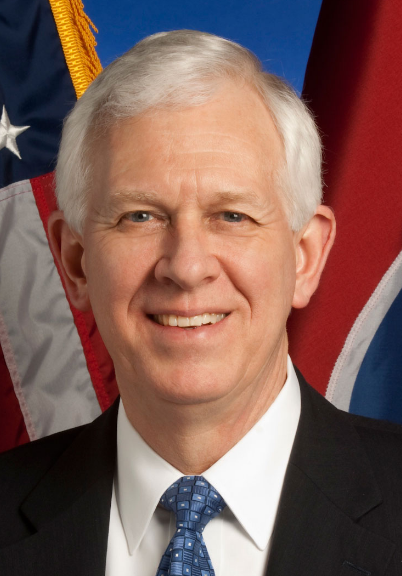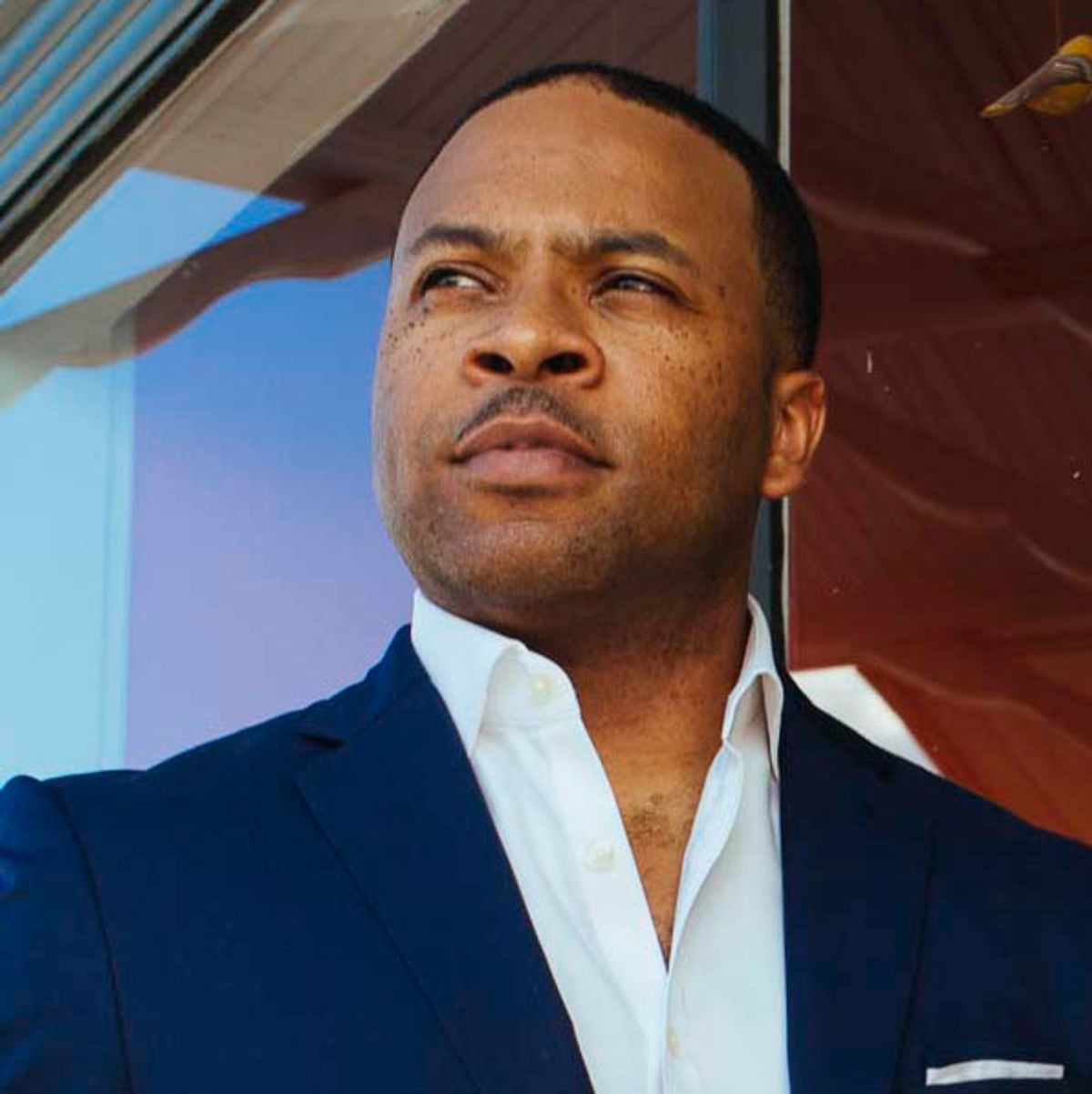Mike Heidingsfield spends most of his days studying local crime-fighting strategies in the safety of his downtown Memphis office. But back in 2005, the president of the Memphis Shelby County Crime Commission helped train police forces in Iraq. That experience qualified him for another dangerous task recently.
Heidingsfield spent two weeks in early July in Iraq as part of a commission studying the progress of the Iraqi Security Forces, which includes the Iraqi Army and the Iraqi Police. He, along with 20 others who served on the commission, testified before Congress earlier this month. — by Bianca Phillips
How did you end up on the Iraqi Security Force Commission?
In the appropriations bill that passed Congress in May, there was language inserted by Senator John Warner requiring that an independent commission be established to go to Iraq and assess the progress of the Iraqi Security Forces, which means the Iraqi Army and their military in general and the Iraqi Police.
We were supposed to determine, if in the next 12 to 18 months, they’ll be able to secure their borders, deny safehaven to terrorists, re-build their infrastructure, and train additional personnel. That was our mandate.
The commission was chaired by a retired marine corps four-star general. He chose about 15 additional retired general officers to go with him. Then he chose five police executives, so I was one of those.
How do you study the Iraqi Police?
We broke up into teams. The law-enforcement team stayed together. We traveled all over Iraq by helicopter gunship — all the way north to Kurdistan, west to the Al Anbar Province, east to the Iranian border, and south toward Basra.
We met with the Iraqi Police. We went to their training centers. We sat through their classes. We watched them operate in the field. We interviewed them. We did everything possible to immerse ourselves in what they were doing. It was of no value to stay in the Green Zone and simply be briefed because you don’t get a since of what’s really happening.
What did the commission find about Iraqi Army?
On the good side, the Iraqi Army has made very substantial progress. Probably in the next 12 to 18 months, they will have the ability to operate independently of coalition forces. They’re much more advanced than the Iraqi police.
If you look toward the regions of the country where you have one religion, you definitely have a level of order that was not there when I was there before. Al Anbar Province is one example because it’s all Sunni.
Conversely, Baghdad itself is as or more dangerous than it was when I was there previously. The sectarian violence seems more apparent and more deliberate. In Basra, because the British are drawing down their presence, there is very significant violence that, ironically, is Shiite on Shiite. They’re trying to see who will prevail down there in the oil-rich country.
What about the Iraqi Police?
The Iraqi police are struggling terribly. You have the Iraqi Police Service, which is a national force of 235,000 members. They still remain under-trained, compromised by having a significant number within their membership who are militia members or insurgents. They’re under-equipped. They’re under-armed, and it’s very difficult for them to do their job. It’s aggravated by the fact that, unlike the Iraqi Army, which is controlled by the Ministry of Defense, the Iraqi Police are controlled by the Ministry of the Interior, which is roughly equivalent to our Justice Department.
The Ministry of the Interior is just a dysfunctional bureaucracy. It is riddled with sectarianism. There is a massive amount of distrust and a complete unwillingness to share power or information. As a result of that, the Iraqi Police, as you try to mature them and develop them as a force, suffer terribly.
There’s also an Iraqi National Police organization. So you have the Iraqi Police Service, the IPS, with 235,000 members. They’re throughout the country at 1,200 different locations.
The Iraqi National Police, which is an organization of 25,000 people, are sort of a flying squad for the Interior Ministry. They’re really not police except in name. They’re more like commandoes. They’re heavily rumored to be involved in death squads and torture and are universally disliked in Iraq.
One of our recommendations is that the 25,000-man force should be deconstructed and re-organized. It should be probably one-quarter the size it is now, down to about 6,000 men. They should have specific, highly specialized skills, like urban search and rescue, dealing with improvised explosive devices, tasks that require a highly developed skill level, but don’t have any political connotation. The rest of them should be disbanded and maybe put into the Iraqi Police Services or the Iraqi Army.
It’s kind of a mixed bag. There’s no doubt the borders are not secure. They cannot secure the infrastructure. They cannot deny safehaven to terrorists, and they’re having great difficultly training additional forces. It’s a pretty pessimistic picture.
Their police force is set up like the military. When you say police officer in Iraq, that’s like a captain or a colonel or a general. They have 10,000 generals in the Iraqi Police. Everybody’s a general. They’re the bosses.
Then they have shurtas, which is the worker bees. But there’s nothing in between, and that’s one of the issues. The shurtas don’t have any independent decision-making authority. And the whole notion of first-line supervisors or middle management doesn’t exist in Iraq.
They can ultimately be successful if the Iraqi government commits to re-organizing the Ministry of the Interior. Until that is re-organized, the Iraqi Police will never be successful.
Didn’t you help train Iraqi police back in 2005?
I was there from October 2004 to January 2006. I was the State Department’s contingent commander for the police advisory mission in Iraq. I was responsible for all the U.S. police advisors who were there to train Iraqi police. There were 500 of them.
We built a basic police academy curriculum that had a lot of the same things that we teach here about Western democratic principles. That did not resonate at all with the Iraqis. They don’t have any point of reference for that sort of thing. It just doesn’t make sense to them because they haven’t lived under that kind of system.
Plus, the Iraqi Police recruits were being killed at such a high rate on their way to us to be trained or after we released them from the duty station. They didn’t have the skills to stay alive.
So the curriculum had to be changed pretty substantially and it made them more of a light infantry force. They learned survival skills.
Today, they go through a hybrid-training program. Some of that Western training is occurring, and there’s also a great deal of some of those survival light infantry skills. Slowly, you see some progress being made. One of the best things that’s happened is we have now trained a sizeable contingent of Iraqi trainers, so we’ve got Iraqis training Iraqis. That’s better than having Americans training Iraqis in the classroom.
There’s a lot of controversy now over whether or not the U.S. should pull out of the war altogether. Based on what you’ve seen, what do you think?
I think we ought to re-deploy our forces to bases in Turkey, Kuwait, and Jordan. Obviously, Syria is not going to let us base any troops there. We gave up our base in Saudi Arabia. But in Kuwait, Turkey, and Jordan, we’d be strategically positioned around Iraq.
I think we should secure the borders of Iraq, so that Syrians and Iranians are denied the ability to go in and influence events.
I think we should secure the infrastructure, like the electrical grids, the oil fields, and if we do that, we should leave the internal political decisions to the Iraqis. They have to sort through how they’re going to come at political reconciliation.
We did three things in Iraq: We removed a bad guy, we gave them the structure for a representative government, and we determined there were no weapons of mass destruction. But we can’t fix thousands of years of religious history. All we can do is give them a safe operating environment and a level playing field.
Do you think the troop “surge” made a difference?
I think it made a difference in the interim. Whenever you impose 30,000 additional troops in a relatively confined area, it’s going to displace the violence and reduce the level of violence.
The question is whether the Iraqis have the ability to sustain that after we no longer have the surge in place. I think the original premise of the surge was to give the Iraqis the opportunity to make political decisions. And they have not done that.
What were the Iraqi attitudes like toward Americans while you were there?
It’s kind of a mixture. There’s a sense of weariness because we’ve been there so long. I think they feel like they need us, but they’re really weary of having us. I had a police commander say to me, “You can’t leave because you’ve caused this situation. There’s a moral imperative that requires you to stay.”
I didn’t respond to that, but in my heart, I felt like there’s an equal moral imperative that says, “We have to be sure we’re sending our children to die for the right reasons.”
What about the morale of American soldiers?
It’s very good. They’re tired. Many of them have been there two, three, or four times. It’s fair to say they’re weary. But morale is very good. No matter how the soldiers feel personally about the war, they just keep saluting and doing the job.
Were you afraid while you were there?
Yes, you’re always afraid, because if you’re out in the Red Zone, you never know who the enemy is because they look just like the next person. You never know where the next explosive device is going to be hidden. And you never know when you’re going to be targeted.
In my 14 months there in 2005, on my first tour, the headquarters I was in was bombed three times. I got ambushed on a highway and we had to fight our way out of it. And we got hit by a roadside bomb. I experience the variety of attacks that one gets when you’re part of the coalition. So you’re fighting all the time.
You sleep in catnaps. You’re always listening. I slept with my body armor and my machine gun. That’s just the way you live.
Does the Green Zone feel safe?
No it doesn’t, oddly enough. It used to feel safer. When I was there the first time, every so often, the Green Zone would get rocketed or hit by a mortar. But unless it was that unlucky fellow who happened to be underneath it, nothing tended to happen.
This time, we got rocketed and mortared every day in the Green Zone. And there were five deaths within the span of four days. In fact, the first death of an Army nurse in combat since Vietnam occurred while we were there. She was going to the gymnasium to work out and was hit by a mortar.



